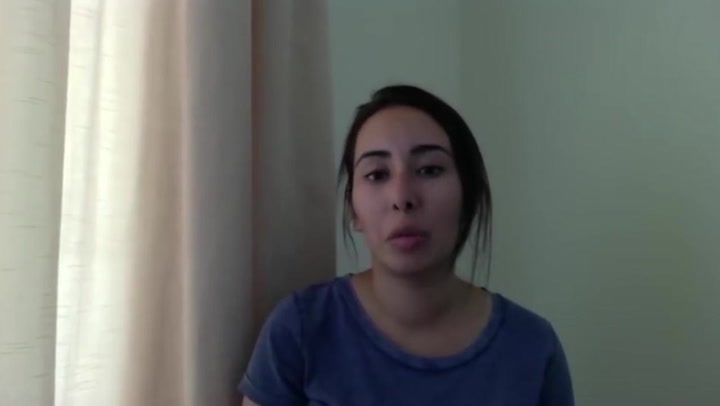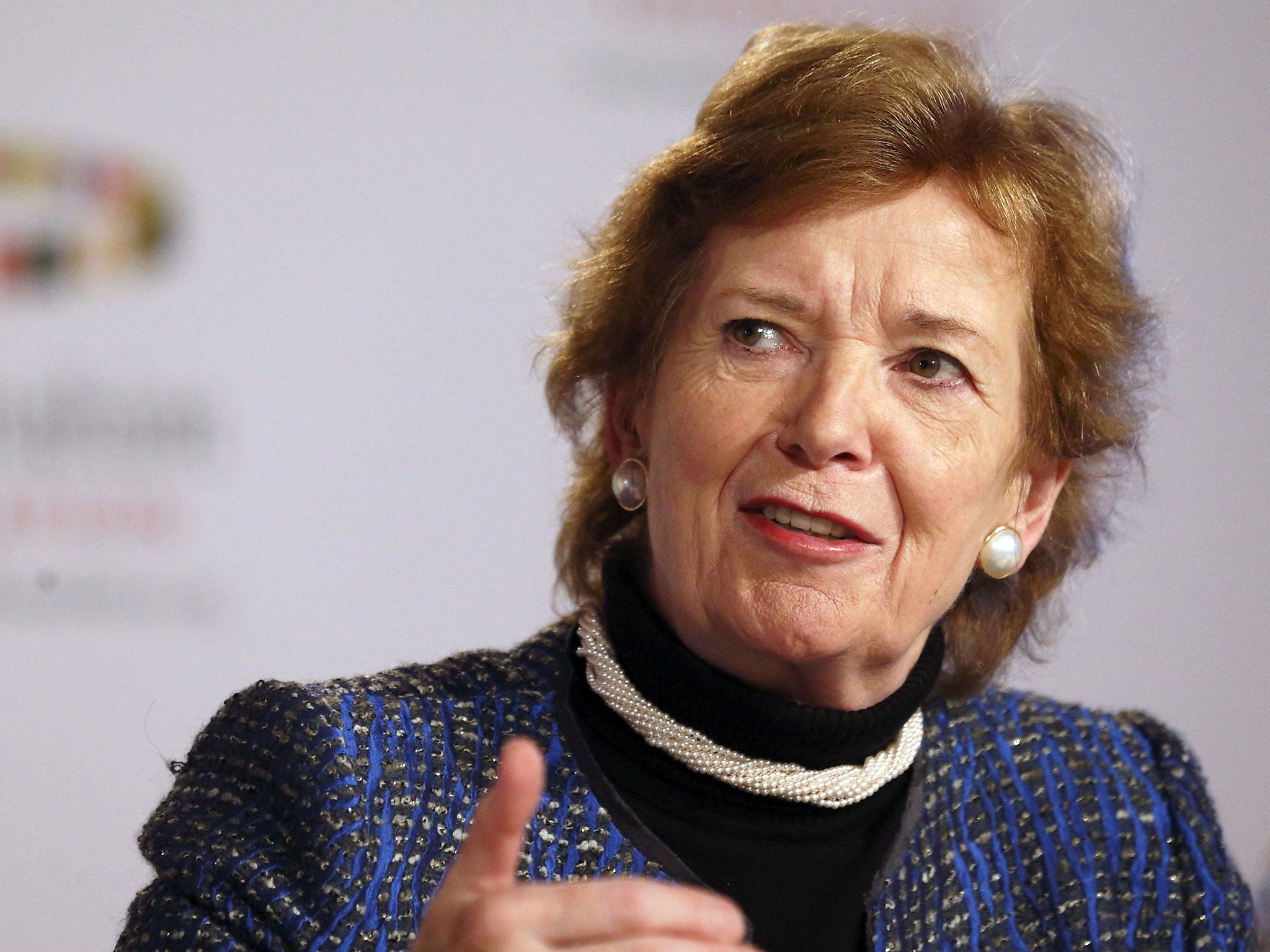Not only is this a clear misuse of Robinson’s former office as UN high commissioner for human rights, it undermines the movement for the fair treatment of women
David Haigh, The Independent
January 8, 2019

There’s a saying in show business that you can spend 20 years becoming an overnight star. In politics, the same is true in reverse, as the sad case of Mary Robinson and Princess Latifa of Dubai shows.
In a world of Trump, Le Pen, Salvini, Bolsonaro and numerous others, the likes of Robinson have stood out as beacons of hope. To the world outside Ireland, she distinguished herself in her seven years as president, and went on to serve five years as the UN high commissioner for human rights. As a young law student at Southampton University, she was someone I found inspiring.
The fact that she has now turned her efforts to fighting climate change – specifically the social justice that underpins fighting it – is also admirable. But in promoting her book Climate Justice: Hope, Resilience and the Fight for a Sustainable Future, she has waded into murky waters that have, at best, left serious questions about her links with friends in high places, and, at worst, tarnished her reputation as a global stateswoman that took 30 years to build.
Robinson got herself dragged into the case of Princess Latifa Al Maktoum, one of the couple of dozen offspring of Sheikh Mohammed, the ruler of Dubai and second-most-powerful man in the United Arab Emirates (UAE), and five of Latifa’s companions.
Ten months ago, Latifa enlisted my help as she made a daring escape from the gilded cage in which she felt imprisoned, recording a 40-minute video before she went in which she explained why she did not want to stay there. Her escape ended when she was kidnapped off the coast of India by crack UAE and Indian troops and taken back to Dubai, where she has been kept behind closed doors ever since.
After BBC2 screened a documentary about the kidnapping on 6 December, comparing it to the capture on the streets of Cambridge of Latifa’s older sister Shamsa in 2000, Dubai’s status as a destination of choice for European tourists was suddenly under threat. The UAE needed a PR offensive to put the world’s mind at rest.
That’s when Sheikh Mohammed’s wife, Princess Haya, appears to have contacted Robinson and asked her to come to Dubai and vouch that Latifa was safe and well. Robinson used the promotion of her book to justify the trip, and even claims to have given a copy to Latifa when they met over a well supervised lunch in mid-December.
Since then Robinson has described Latifa as “vulnerable” and “troubled”, says she “regrets trying to escape” from Dubai and making the video, says she was in a “serious medical situation” but receiving psychiatric care, and is now “in the loving care of her family”.
This is shocking on two fronts. Firstly, what is a former UN human rights commissioner doing apparently providing cover for a regime that the UN has censured in numerous human rights reports and that has failed to respond to the UN body investigating the kidnap of Latifa and her five companions last March?
If it is the case, this is a clear misuse of her former office and undermines the work of the current UN human rights commissioner. Secondly, does Robinson seriously expect anyone to believe her, given that she is spouting almost word-for-word Dubai’s script about Latifa after a trip paid for by the very family Latifa was trying to escape from?
It’s actually worse than shocking. By assisting Dubai’s rulers, I believe Robinson has undermined the entire movement for fair treatment of women, including #MeToo. No-one can claim Latifa has grown up in poverty, but what’s clear is that her human rights have been violated over decades.
Robinson may feel she’s just doing the right thing, but as far as I’m concerned, she’s effectively thwarting the pursuit of justice and advancement of equality for millions of women across the Middle East and in the Gulf.
It may be that she didn’t know the full story about Latifa, but whose fault is that? Robinson never contacted myself, Latifa’s barrister Toby Cadman or Detained as the princess’s representative, or the other five who were attacked and kidnaped alongside Latifa; nor did she contact Amnesty International or Human Rights Watch who support our campaign.
I believe Robinson is interfering in a way that could have cost Latifa her life. Even now, the powers-that-be in Dubai may be abusing psychiatry to keep Latifa docile (as happened with her sister Shamsa).
There are two mildly mitigating factors in Robinson’s involvement. Firstly, she has at least brought us proof that Latifa is – or appears to be – still alive. Many of us had doubts following the kidnap, so that’s a small piece of good news, if confirmed.
Secondly, is it possible Robinson was duped by an old friend in Princess Haya? Haya is a UN goodwill ambassador, and I wonder if she called on Robinson to help solve what Robinson described as “a family dilemma”. But if that’s the case, she was naïve, and the UN should investigate Haya for her involvement in the matter and strip her of her status.
And it begs the question: how many other people are denied their lives and rights, simply because someone knows someone who’s a friend of someone?
But the mishandling of the Robinson affair has backfired to such a degree it may actually help secure Latifa’s freedom. The world is now watching Dubai.
There will no doubt be another PR stunt, anything it seems but allowing Latifa and her sister their freedom.
How will Dubai and Latifa’s father glaze over a growing international scandal that could very well contribute to the downfall of his rule? Myself, along with Latifa’s best friend Tiina and the others campaigning for her release only hope the next headline we read is not “Latifa commits suicide”.
Robinson was rightly revered for her life’s work, and that work is not invalidated by her totally unacceptable interference in the case of Princess Latifa. But in my opinion, her reputation has been tarnished by this, and it will take a lot of explaining for her to undo the damage she has caused both herself and the cause of human rights.
Human rights should be sacrosanct, and not a commodity to be sold by former defenders of them, much in the same way that English law should not be sold by retired UK judges that prop up the UAE’s courts. Justice should be a basic right in a civilised world.
